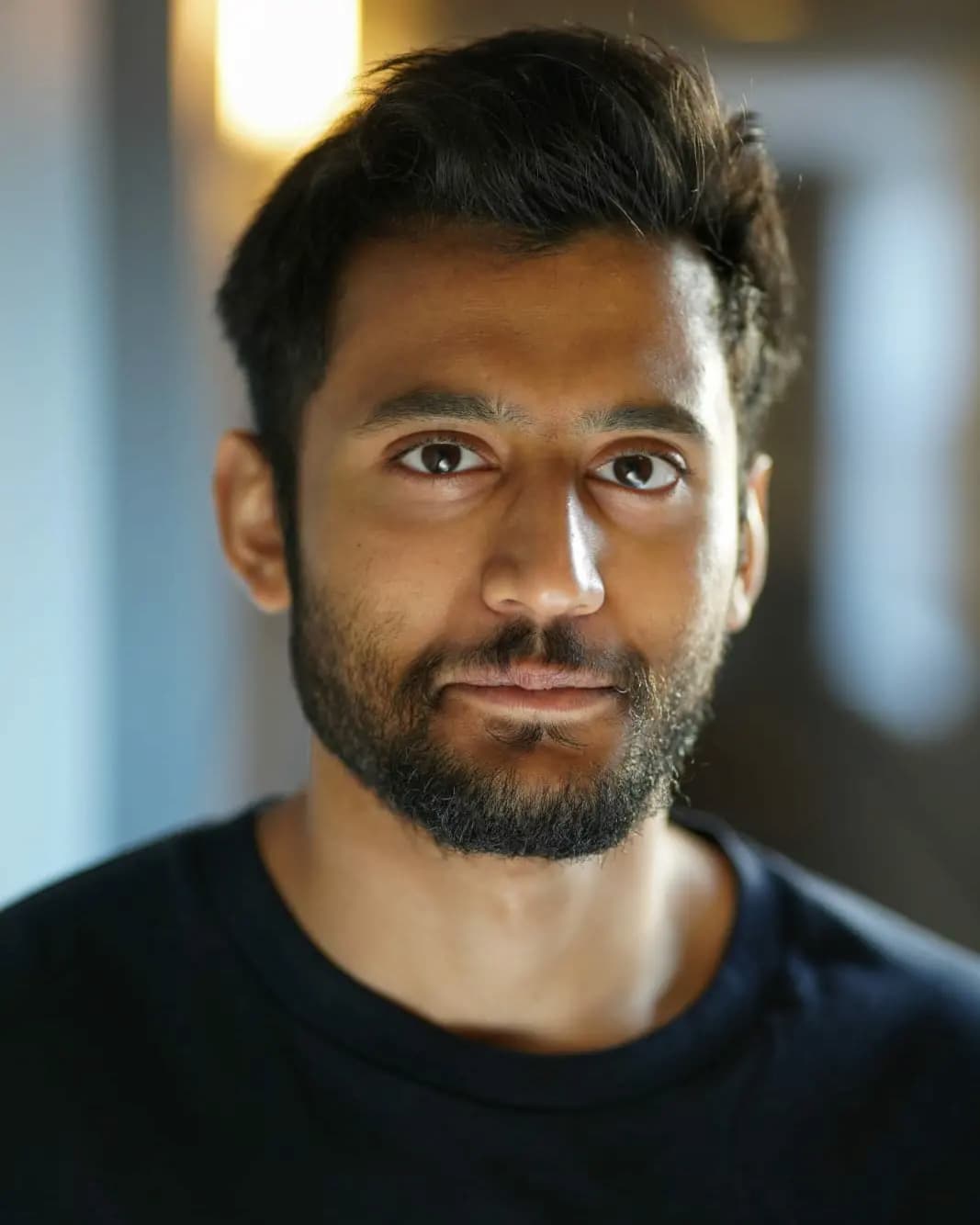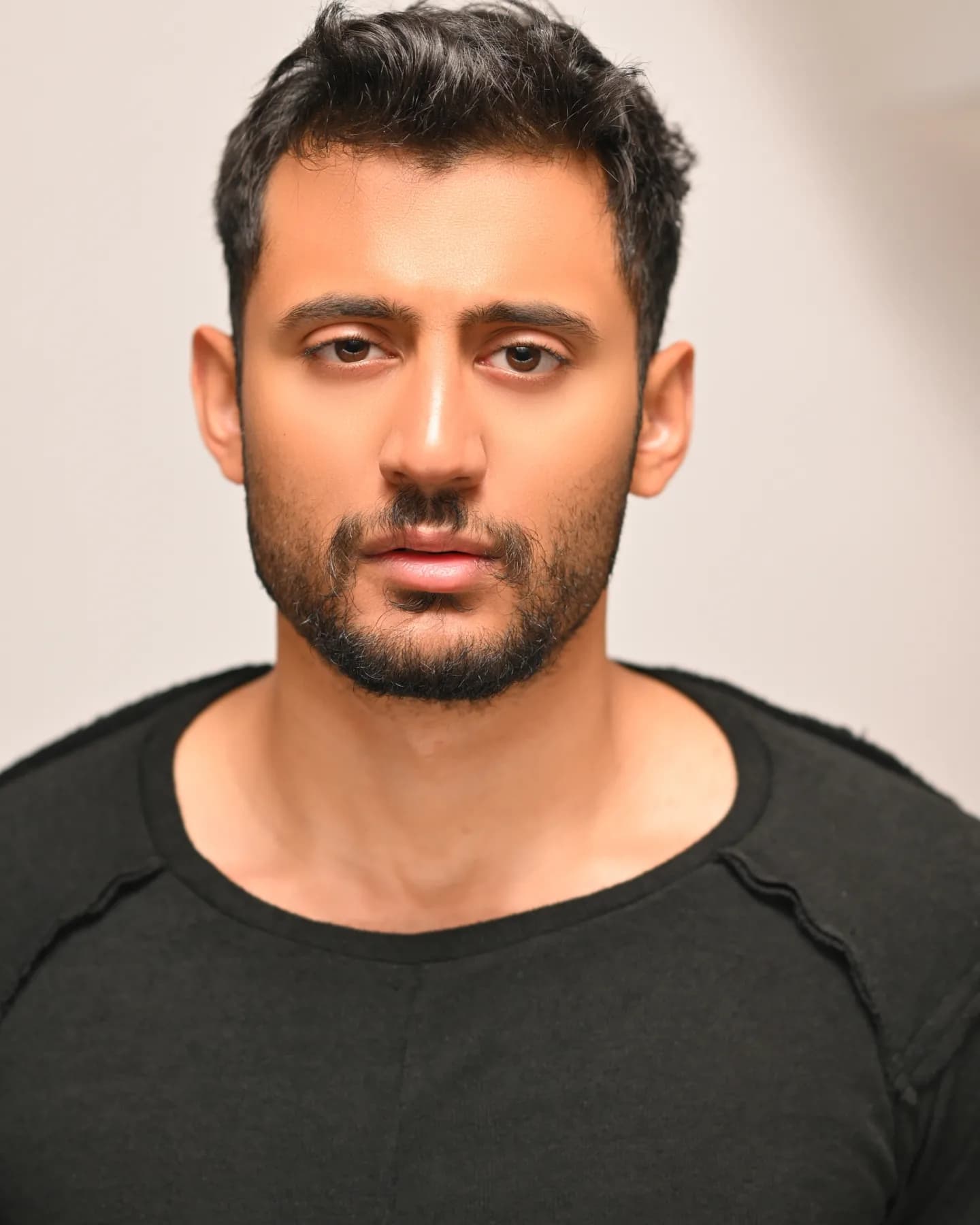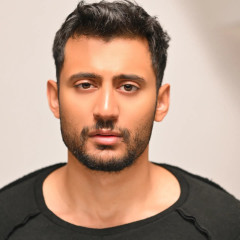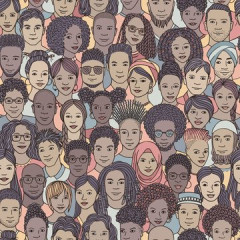 Can you introduce yourself and your creative background?
Can you introduce yourself and your creative background?
My name is Hari Bhaskar. I'm originally from the state of Kerala in India. I grew up in Dubai for 12 years before moving to India for ten years after that, and then eventually to New York City in January of 2021. I graduated from the Stella Adler Studio of Acting in June of 2022 from the Evening Conservatory program. My first speaking role in a play was when I was in middle school in India, and it grew as a passion ever since. I mostly do stage acting, with a little screen acting sprinkled here and there.
How long have you been acting and what was the pathway to your career like?
As a career, I've been doing it for the last nine months, but my first speaking role was when I was twelve, after I moved to India. I decided to pursue it professionally after we did Jesus Christ Superstar in high school, and the recording sessions that we had at the studio, where we would be there for 14 hours, and the time that I spent with my co-actors, made me realise that this is what I want to do for the rest of my life.
What are some of the roles you have played, and which one would you say has been your favourite so far?
They include Longaville in Love's Labour's Lost by William Shakespeare, Vershinin in Three Sisters by Anton Chekhov, Rishi Nair in You & I (a web series to be released soon), and Nick Carraway in These Gilded Souls by Aly Kantor to name a few, but my most favourite one is when I did Amir in Disgraced by Ayad Akhtar, as a part of my final project at the Stella Adler Studio of Acting.
What are some of the challenges that come with being a working actor?
For me personally, number one would be drawing boundaries and either saying no or asking for more, without seeming uncivil. It definitely is a tightrope to walk; not being a doormat for others to walk on. Walking that tightrope comes in especially when asking for more payment, and for me personally, when it comes to saying no to auditions, always that worry hanging over my head that I may not get another audition. Being secure about yourself is definitely one of the most difficult things in this industry.
As a South Asian actor living in New York, what has your experience been like in the industry?
Thankfully I haven't faced too much racism in the industry, but there have been times where I do feel like the odd one out. A majority of the plays that I've done, I've been the only South Asian actor in the cast. As we're talking about this topic, I would like to thank Eastline Theatre, which is based in Long Island, for giving a BIPOC actor like me the opportunity to play a character like Nick Carraway, who has predominantly been represented as a White character in popular media.
Representation in film and the media is a hot button issue in the West, has the lack of representation ever deterred you from going for a role or from being in the industry?
Lack of representation is what pushed me to move to the United States. My goal has always been to be the first South Asian A-list actor. I don't want people back home in India to be celebrating a five-minute appearance of a famous Indian actor in a Hollywood movie; I want the standards to be raised.
How far do you think representation has come and what more do you think needs to be done to make the industry more inclusive?
It definitely has come a long way. Priyanka Chopra Jonas is at the forefront of especially South Asian representation, where the ethnicity of the character doesn't matter. Right now, the double-edged sword is that more BIPOC stories are coming to the fore and therefore people from those communities are getting opportunities to tell their stories, but they're only able to tell those stories. Hopefully there'll be a day when a Puerto Rican and an Indian are headlining a rom-com, but the focus is on the story and not where they're from. The focus is on the characters and not on the ethnicity, which would become the fulcrum around which the story revolves.
What advice do you have for other BIPOC actors on getting seen in the industry and not allowing the lack of representation be an obstacle in their career?
I would say there are thankfully people out there who will look at you for your talent and not the colour of your skin. Eastline Theatre in Long Island made me believe that when they cast me as Nick Carraway. It definitely is an uphill battle, but when you meet nice people along the way, you'll definitely enjoy the journey.
If you weren’t an actor, what other career do you think you’d be doing? Have you ever worked outside of the arts?
I honestly don't know. I don't know anything else other than acting. I'm not very smart! I've never worked anywhere else. Though I was a very academic student, I can't imagine doing anything else.
What advice do you have for other young people on pursuing an acting career?
If you plan on pursuing an acting career, do it because you enjoy telling stories. If you are chasing fame, then you are never going to get it. You only chase after something if it's running away from you. Do it for the love of storytelling. Fame and fortune is just a bi-product. It could be one of the reasons, but it shouldn't be the reason.
Is there anything you are currently working on? What’s next for you?
Right now I'm working on a couple of plays as well as a couple of short films.
Where can people find you online and/or watch anything you have been in?
My Instagram is @bhaskarettan. Unfortunately I don't have anything good on the internet!








0 Comments